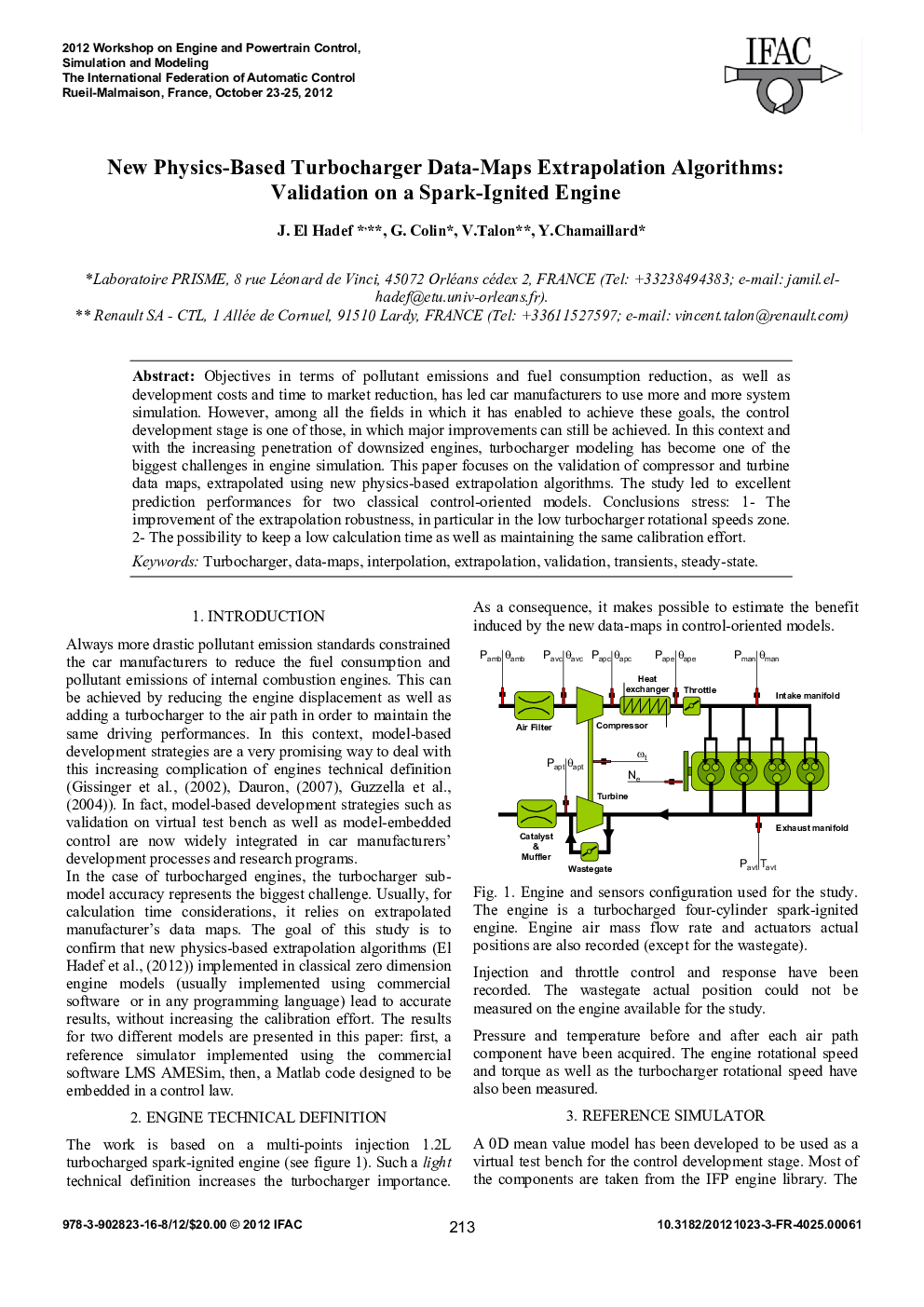| Article ID | Journal | Published Year | Pages | File Type |
|---|---|---|---|---|
| 713818 | IFAC Proceedings Volumes | 2012 | 8 Pages |
Objectives in terms of pollutant emissions and fuel consumption reduction, as well as development costs and time to market reduction, has led car manufacturers to use more and more system simulation. However, among all the fields in which it has enabled to achieve these goals, the control development stage is one of those, in which major improvements can still be achieved. In this context and with the increasing penetration of downsized engines, turbocharger modeling has become one of the biggest challenges in engine simulation. This paper focuses on the validation of compressor and turbine data maps, extrapolated using new physics-based extrapolation algorithms. The study led to excellent prediction performances for two classical control-oriented models. Conclusions stress: 1- The improvement of the extrapolation robustness, in particular in the low turbocharger rotational speeds zone. 2- The possibility to keep a low calculation time as well as maintaining the same calibration effort.
